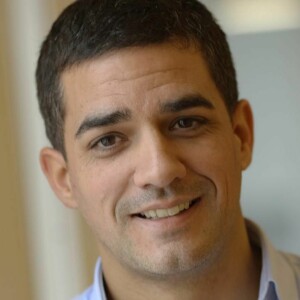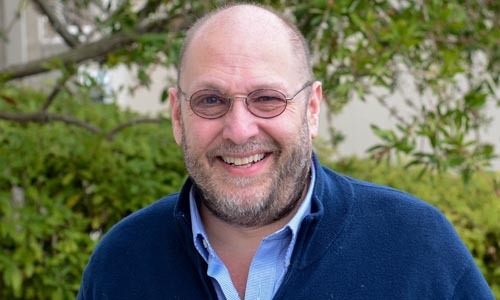Episodes

Thursday Nov 29, 2018
Gecko Looks to Broad Applications in Tissue Reconstruction
Thursday Nov 29, 2018
Thursday Nov 29, 2018
Gecko Biomedical’s first product Setalum is a sealant that prevents bleeding after the use of sutures to repair blood vessels, but the polymers underlying the product represent a platform technology that can be used to develop a broad array of tissue reconstruction offerings addressing bone, nerve, ophthalmic, and urological applications. We spoke to Christophe Bancel, CEO of Gecko, about the company’s platform technology, its versatility, and how the company is looking to partnering to expand its reach.

Wednesday Nov 21, 2018
The Search for Mediators of Aging
Wednesday Nov 21, 2018
Wednesday Nov 21, 2018
In 1988, researchers showed that they could extend the lifespan of worms by manipulating the genetics of these model organisms. The implications that the normal aging process could be altered ignited scientific research into the emerging area of geroscience. As the Buck Institute for Research on Aging readies to mark the anniversary of this landmark research with a day-long celebration, we spoke to Gordon Lithgow, chief academic officer of the Buck. Lithgow discussed how the field has advanced from that key discovery, our understanding of aging today, and what progress has been made to identify compounds that could extend healthy years of life.

Thursday Nov 15, 2018
Using Drug Delivery Technology to Improve ADHD Therapies
Thursday Nov 15, 2018
Thursday Nov 15, 2018
People with attention-deficit/hyperactivity disorder who use stimulants to treat the condition often face afternoon crashes and require the use of booster doses. Cingulate Therapeutics is using its proprietary drug delivery technology to target this $14 billion market with timed released formulations of commonly used ADHD drugs it is developing. We spoke to Shane Schaffer, CEO of Cingulate, about ADHD, the company drug delivery technology, and its clinical path forward.

Thursday Nov 08, 2018
How One Company Is Targeting a Growing Opportunity in Women’s Reproductive Health
Thursday Nov 08, 2018
Thursday Nov 08, 2018
Problems of women’s reproductive health represent a growing worldwide concern, but it remains an area of unmet medical needs. ObsEva is advancing a late-stage clinical pipeline with development programs focused on treating endometriosis, uterine fibroids, preterm labor and improving IVF outcomes. We spoke to Ernest Loumaye, CEO of ObsEva, about the issue of women’s reproductive health, the company’s lead therapies in development, and the plan for commercializing its products.

Thursday Nov 01, 2018
Why an HIV Drug in Development Could Change How Cancer Is Treated
Thursday Nov 01, 2018
Thursday Nov 01, 2018
CytoDyn’s lead candidate for HIV is part of a new class of therapies that work by protecting healthy cells by blocking viral infection. But the receptor that the drug targets also plays a role in cancer metastasis and may provide a new approach to treating a wide range of cancers. We spoke to Richard Pestell, chief medical officer of CytoDyn, about the drug, how it works, and why it may have value in a range of serious medical conditions.

Thursday Oct 25, 2018
How the Rise of the Patient-Consumer Is Changing Clinical Trials
Thursday Oct 25, 2018
Thursday Oct 25, 2018
The rise of the Internet, social media, and communications technology has transformed consumer behavior. Consumers today are better informed, expect a high-level of engagement, and a modern service experience. Shay Brill, vice president of corporate development for Atlantic Research Group, in a white paper released at the recent Global Genes Rare Patient Advocacy Summit, argues that similar changes are underway in the behavior of patient-consumers. We spoke to Brill about these trends, how they’re is changing drug developers’ relationships with patients, and what these changes mean for sponsors of clinical trials.

Thursday Oct 18, 2018
Bringing Real-World Monitoring to Autoimmune Disease
Thursday Oct 18, 2018
Thursday Oct 18, 2018
DxTerity is a genomics company that’s providing real-world monitoring of patients with autoimmune disease with from-home RNA testing to improving the management of these conditions. The company’s technology not only has the potential to change the way diseases such as multiple sclerosis, lupus, and rheumatoid arthritis are managed, but change the way clinical trials in these conditions are conducted. We spoke to Bob Terbrueggen, CEO of DxTerity, about the company’s from-home RNA tests, how they work, and the potential application of the technology.

Thursday Oct 11, 2018
Using Real-World Evidence to Improve Drug Development
Thursday Oct 11, 2018
Thursday Oct 11, 2018
The availability of a growing body of real-world evidence has regulators considering how clinical trials using disparate sources of data might work. Many see harnessing such information as a way to provide better insight into the safety and efficacy of drugs while reducing the cost of clinical trials. A number of issues, though, will need to be addresses as the U.S. Food and Drug Administration takes a first pass at a framework for using real-world evidence. We spoke Nancy Dreyer, chief scientific officer & senior vice president of real-world & analytic solutions for IQVIA, about real-world data, its potential to change the way clinical trials are conducted, and the challenges to applying it.

Daniel Levine
Daniel Levine is an award-winning business journalist who has reported on the life sciences, economic development, and business policy issues throughout his career. He is founder and principal of Levine Media Group, host of The Bio Report and RARECast podcasts, a senior fellow at the Center for Medicine in the Public Interest, and author of Global Genes’ annual NEXT report on emerging trends in the world of rare disease. From 2011 to 2014, he served as the lead editor and writer of Burrill & Company’s acclaimed annual book on the biotech industry. His work has appeared in numerous national publications including The New York Times, The Industry Standard, and TheStreet.com.

